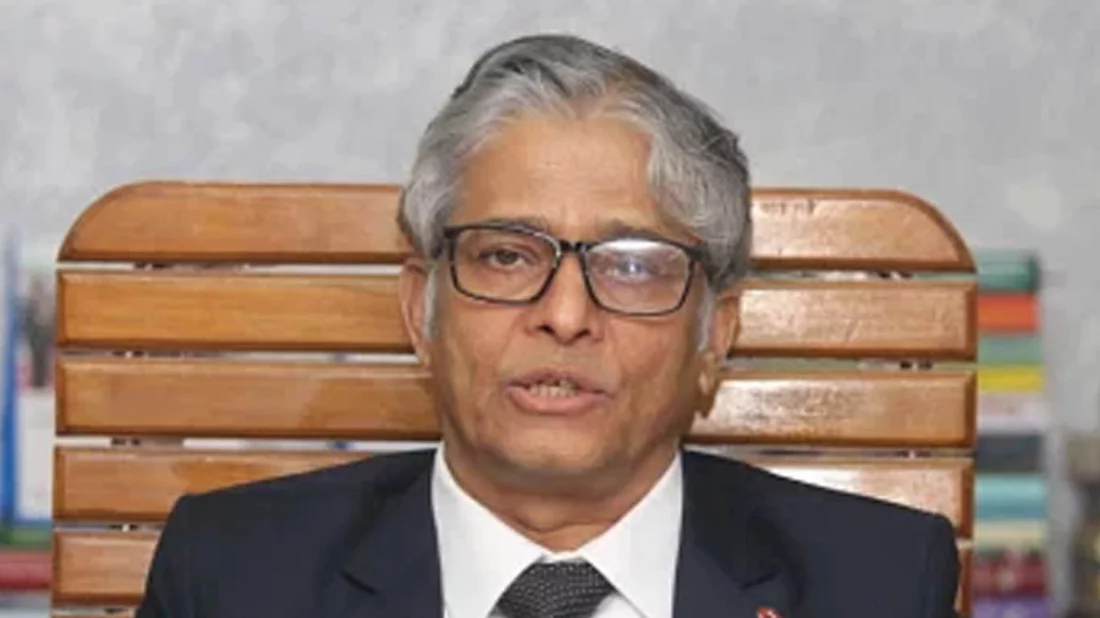
A few days ago several mainstream media reported about Dhaka University Vice-Chancellor’s not getting a Canada visa. The gist of the news is that the Vice-Chancellor. Akhtaruzzaman could not attend the symposium held at York University in the country organized by the Association of Commonwealth Universities without getting a Canadian visa.
It was said by the organizers that the invited guests should participate in the organized programs by being present in person. Finally, the Vice-Chancellor participated online in the symposium held on July 18. Organizers also expressed regret to the Vice-Chancellor for the delay in visa process.
The vice-chancellor submitted the application for the visa on June 15. His passport is still at the Canadian High Commission in Dhaka. The embassy has not yet informed the vice-chancellor about the refusal to issue a visa. However, some media reported that he was not granted a visa. The statement of the embassy was not taken anywhere in the news.
It takes about two months to get Canadian visa from Dhaka in normal process. That’s the rule. The Vice Chancellor of Dhaka University applied there a month ago. So the campaign that he was ‘not granted a visa’ is not relevant. Our journalistic lump is also here.
The concerned reporter should have contacted the Canadian High Commission in Dhaka and taken their statement for unbiased journalism. If the reporter had failed to do so, it would have been the professionally responsible conduct of the person who edited such a report to have directed the reporter. Withholding this report without statement and explanation from the embassy.
Long procedures or lengthy procedures for visas with citizens of third world economically backward countries like Bangladesh is nothing new. In that case there is always a word called ‘urgent consideration’. The current process takes two months to get the desired Canadian visa. However, the embassy authorities here would have behaved more coherently if they had arranged to issue the visa within a month after looking at the schedule of participation in the conference.
In this case, the concerned officers involved in the visa application process of the Vice-Chancellor could have communicated according to diplomatic etiquette if necessary. If necessary, he could directly bring the matter to the attention of the High Commissioner. Dhaka University authorities may have assumed why it would take so long to get the vice chancellor’s visa.
If the Vice-Chancellor is not able to go to Canada due to visa complications, then the Canadian High Commission in Dhaka and the organizing authority should be embarrassed. Because the invitation came from them. It is not that the vice chancellor has applied for a visa to visit. The organizers have already expressed their grief formally to the Vice-Chancellor. Now the high commission in Dhaka will also agree when returning the vice chancellor’s passport and when issuing the delayed visa, hopefully setting a positive example by expressing regret.
Now I want to tell a few stories about visa complications. Once I submitted an application to an embassy in Dhaka almost a decade and a half ago to participate in an international writer’s conference in a European country. The date of the conference is almost here, but I can’t get the visa. Incidentally, I met the ambassador himself at a function organized by the embassy at the Westin Hotel in Dhaka. During a polite conversation with him, I brought up my visa application. He said that he will go to the office the next day and look into the matter. He asked me to send a mail. What is said is what is done. The next day the embassy called me and informed me that your visa is done, come and take your passport.
Once a leading poet of our country was invited to participate in a literary conference in the capital of a neighboring country. As usual the visa was also applied for in due course. He was also granted a visa. However, the scheduled conference will end when the visa reaches the capital of the neighboring country. This treatment of the visa with the poet was deliberate. For, weeks before submitting the visa application, he had hinted in a daily newspaper about the twists and turns in the history of the Pak-India subcontinent, that there is no guarantee that the future map and borders of the country will remain as they are today? It is also possible that the undivided Bengali speaking environment before the colonial period may regain its old lines by making Dhaka the capital. And that’s why one of our poets had to face the Gauls to get a visa.
Back to the subject of the Vice-Chancellor’s visa application. Let me say a word to those who are ready to clap if the Vice-Chancellor is not granted a visa. Some may or may not like him personally. But the post of vice-chancellor is symbolic, as well as institutional. If any country or embassy accidentally sets an embarrassing precedent by not granting him a visa, it is a disrespectful scratch on our self-esteem as a nation. At the same time, the diplomatic etiquette of that country will also be questioned. Which cannot be desirable in any way.
For their own personal interests abroad, some people want to applaud the dishonor of the country in one way or another. A father and son are attacked by the enemy in a market of the village. Mair which is roughly passed on to the father. Because he was the target. When the son came back, he was upset and said, “I have survived, I have passed on my father today.” The story ends here.
Author: Bengali-Swedish poet and dramatist; Board Member, Swedish Writers’ Union
